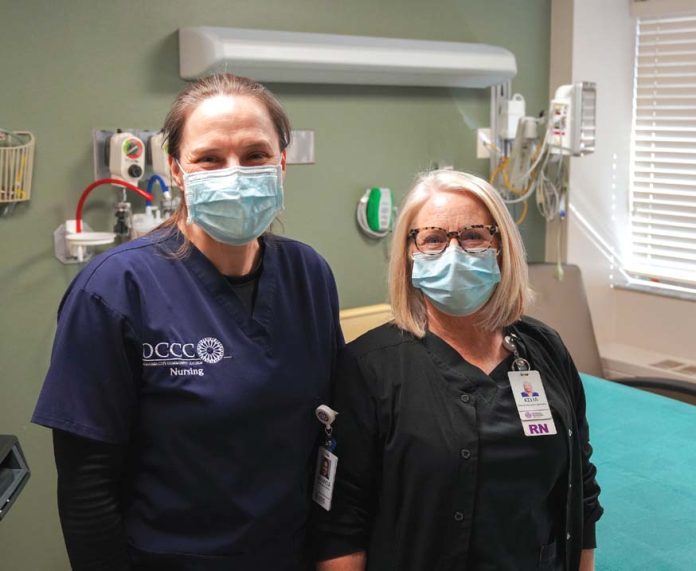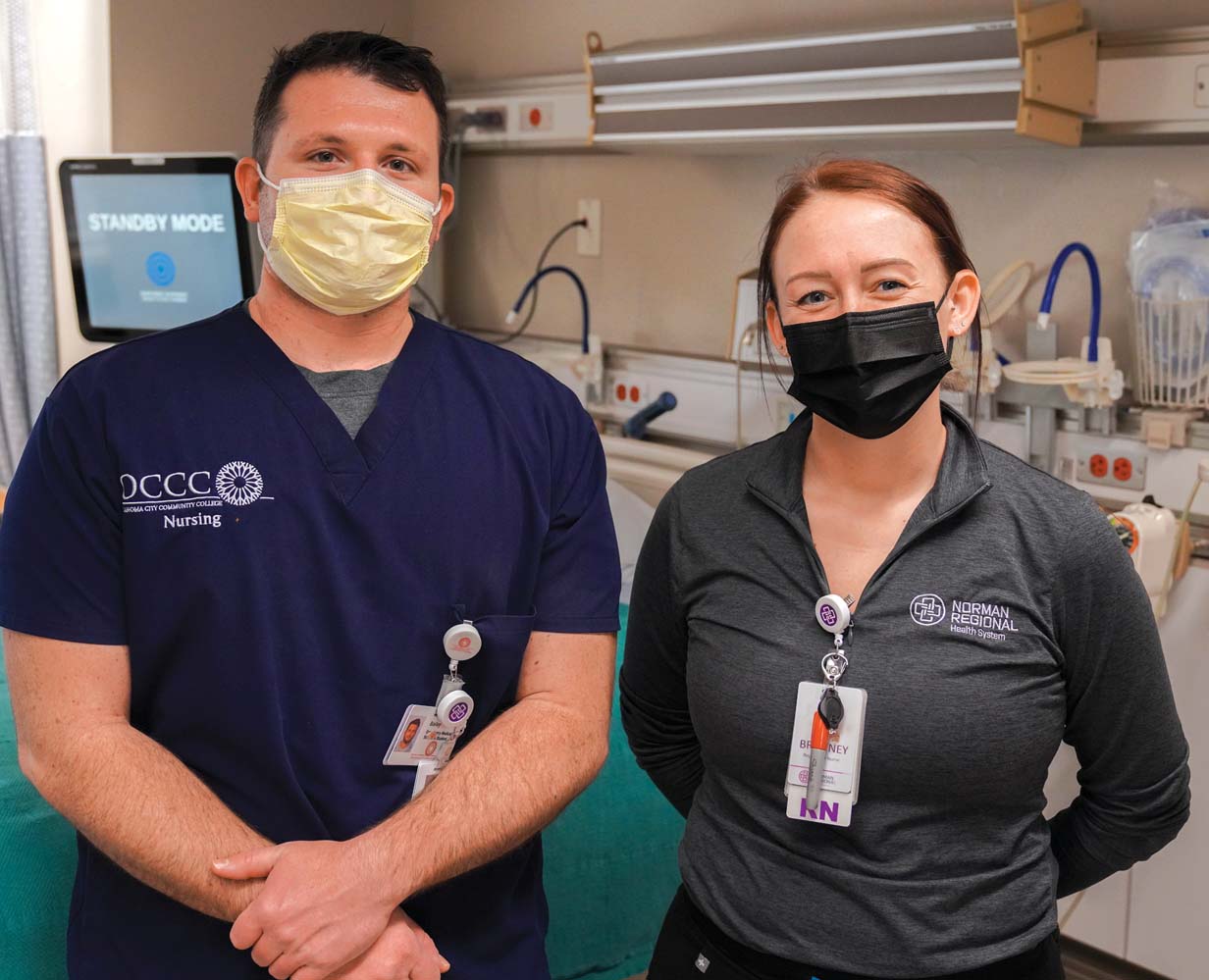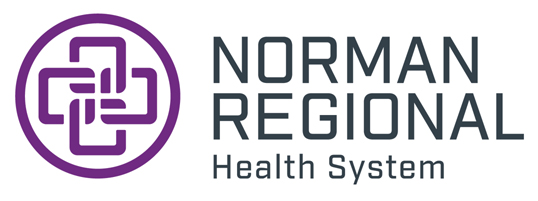
by Bobby Anderson, RN – staff writer

The Covid pandemic took an unfair shot at nursing education. Student nurses trying to learn clinical skills were all but locked out of health care facilities around the country.
But as devastating as the pandemic was to nursing education, it did afford an opportunity for nursing leaders to rethink opportunities for students to not only learn but earn as they continued their education.
Normal Regional Health System’s student nurse partnership is one of those success stories and Chief Nursing Officer Brittni McGill, MSN, RN, CCRN says the program is on its way to becoming a state model.
Student nurse partners work as a patient care tech for a minimum of 48 hours during the program, but could choose to work more.
“My favorite part is it’s truly innovative and super organic,” McGill said. “We built it from the ground up and it’s been so successful the Oklahoma Nurses Association has reached out to us. It’s a big deal for us but it’s something we want to be able to teach others to do because the results speak for themselves.“
The student nurse partnership allows final semester nursing students to get paid for their clinical hours while working on the floor as a patient care technician.
Kelia Crabbe, MSN, RN RDMS, is the transition to practice specialist for Clinical Education at Norman Regional. In addition to her role at Norman, Crabbe also serves as a clinical instructor for students. (STORY CONTINUES BELOW)
Become A Healer – We Are Hiring: Registered Nurse (RN) – 4N MedSurg/Tele * Registered Nurse Flex Pool * Registered Nurse (RN) I – Night shift
She said the partnership gives her students access to the entire health system, allowing her to tailor each student’s educational experience.
“It’s exhilarating to watch them find why they came into the career field, and find their niche,” Crabbe said. “Their confidence just soars. We have documentation showing how they start out and quickly build on all their skill sets. I think the best part is just when they come to you and say ‘I can work with these people.’”
Crabbe said the health system’s community feel coupled with employees’ willingness to help student nurses in their roles provides a safe environment for them to grow their nursing practice.
When Covid shut down most clinical nationwide, students were denied a key component of their nursing education.
“When people graduated there was a clinical competency deficit because they didn’t have hands-on experience,” McGill said. “Some graduated without having a true in-person, clinical experience. Facilities worked on enhancing their simulation but there’s a difference there.”
During that time, the Oklahoma Board of Nursing allowed for students to be paid for clinical time, effectively removing the barriers that most hospitals put in place barring non-employees onsite.
“What we did is we took that exemption and created a program that would be sustainable post-Covid,” McGill said. “When that exemption went away we were able to continue.”
Crabbe said the retention rate from the first-year group was 94 percent. Only one student has yet to not complete the program.
“Just a few weekends ago one of the students texted me after her shift was over that day and said everyone worked together so well on the unit even though it was chaotic and they all helped each other,” Crabbe said. “I think when they see the culture in action that we talk about that reinforces to them that that is the most important part in picking your position in the nursing profession.”
McGill said the ONA’s Academic Clinical Partnership Committee has requested Crabbe and the health system to share the same facilitator model for use statewide.
McGill noted the program has also been cost effective given that upon passing the NCLEX, student nurse partners hired on require significantly less orientation time.
“(Covid) forced us to collaborate and think about things like this and determine how we can partner,” McGill said. “When you look across the industry, it’s programs like this that are going to help us produce more students and more licensed professionals. When you do that it helps increase your staffing levels which helps reduce burnout on those that are established. It’s a way to help get us out of that staffing hole.”
Norman Regional Health System student nurse partners and externs have consistently passed the NCLEX at a rate of 96 percent since the program began in March of 2021.
Those numbers are impressive, especially considering the state pass rate average is 83 percent. Nationally, those taking the NCLEX have dropped to an 81 percent success rate.
“We feel like this is on-the-job training,” Crabbe said “It’s a real key component in satisfying that missing link between classroom and clinical practice. I feel like with this experience we speak directly to clinical objectives and what they need to know to come onboard.”
For more information about Norman Regional Health System, visit: https://www.normanregional.com/













